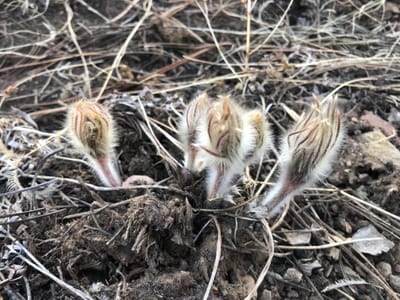About

There are so many ways to tell a story. Here's one.
The liminal space where plants and people connect has been a constant thread through my life.
I started learning about herbs in the woods of Central Idaho, saying their names every time we met. Over and over. Learning out of necessity, most of us with no insurance, far from hospitals.
Since then, I've gone to school, worked in an herb store, as a street medic and setting up clinics at actions and demonstrations, in free clinics and outreach programs, doing end of life and elder care, and as farmer/community herbalist.
All of this and so much more has informed my practice of herbalism. Even the times when I have laid this work down have brought me so much insight into this practice, like the lessons of grief and finding the depths of nothing to give. The process of finding my way back.
My ancestral knowledge of plants is not direct. It has been broken by colonialism, famine, patriarchy, so many intentional and unintentional breaks. My lineage of herbalism is problematic. A history of colonizers stealing indigenous knowledge and using it for their benefit. Of farmers looking for home. The broken lines through time of queers finding our way. Of local herbalists and witches disguising their skills, sending messages to the future in song and recipe.
This is the present I find myself in, what I am navigating. I am, everyday, learning, and looking for my way. How can I as a settler-colonizer on occupied land have a right relationship with the plants? With the land? With myself? Other people? I don't have easy answers, and this is something I will be working with and through in so many ways for my whole life. Questioning, wondering, learning, changing.
Something I love about herbalism is that it is a way to see the world. A lens. There is never an end to learning, to growing. For me, it shapes a holistic view of what health means. That health is inheritently communal, about connection. That in order to work with the health of one person, you must look at the bigger picture. Of society. Systems of oppression. Ways we treat each other and the web we all live in.
Some of my teachers and mentors:
The Plants
My clients and my body
Mo O'brien
Darla Torrez
Su Gregerson
Michael Moore (SW School of Botanical Medicine 2005)
Adam Sellers
Chuck Garcia
Lindsey Feldpausch, Mel Kasting and Thomas Easley (Eclectic School of Botanical Medicine, 2020)
And so so many more!
Thank you!
Disclaimer: Erika Larsen is a complimentary and alternative health care practitioner and is not licensed by the state of California. There is currently no license available for the services provided. All services and treatments provided are complementary or alternative to health care services provided by health care practitioners currently licensed by the state of California.